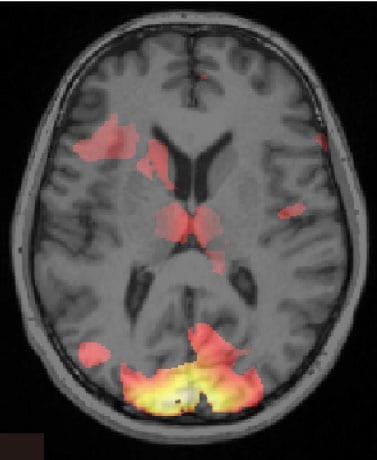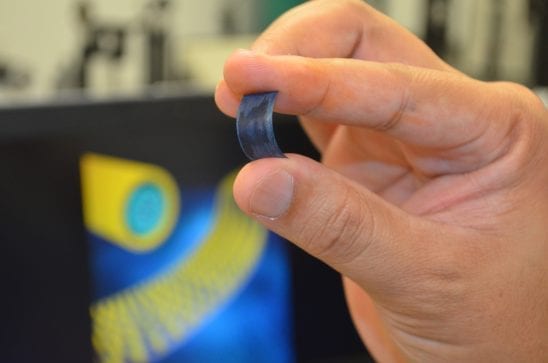
Researchers have discovered a way to remove specific fears from the brain, using a combination of artificial intelligence and brain scanning technology.
Their technique, published in the inaugural edition of Nature Human Behaviour, could lead to a new way of treating patients with conditions such as post-traumatic stress disorder (PTSD) and phobias.
The challenge then was to find a way to reduce or remove the fear memory, without ever consciously evoking it
Ben Seymour
Fear related disorders affect around one in 14 people and place considerable pressure on mental health services. Currently, a common approach is for patients to undergo some form of aversion therapy, in which they confront their fear by being exposed to it in the hope they will learn that the thing they fear isn’t harmful after all. However, this therapy is inherently unpleasant, and many choose not to pursue it. Now a team of neuroscientists from the University of Cambridge, Japan and the USA, has found a way of unconsciously removing a fear memory from the brain.
The team developed a method to read and identify a fear memory using a new technique called ‘Decoded Neurofeedback’. The technique used brain scanning to monitor activity in the brain, and identify complex patterns of activity that resembled a specific fear memory. In the experiment, a fear memory was created in 17 healthy volunteers by administering a brief electric shock when they saw a certain computer image. When the pattern was detected, the researchers over-wrote the fear memory by giving their experimental subjects a reward.
Dr. Ben Seymour, of the University of Cambridge’s Engineering Department, was one of the authors on the study. He explained the process:
“The way information is represented in the brain is very complicated, but the use of artificial intelligence (AI) image recognition methods now allow us to identify aspects of the content of that information. When we induced a mild fear memory in the brain, we were able to develop a fast and accurate method of reading it by using AI algorithms. The challenge then was to find a way to reduce or remove the fear memory, without ever consciously evoking it.
“We realised that even when the volunteers were simply resting, we could see brief moments when the pattern of fluctuating brain activity had partial features of the specific fear memory, even though the volunteers weren’t consciously aware of it. Because we could decode these brain patterns quickly, we decided to give subjects a reward – a small amount of money – every time we picked up these features of the memory.”
The team repeated the procedure over three days. Volunteers were told that the monetary reward they earned depended on their brain activity, but they didn’t know how. By continuously connecting subtle patterns of brain activity linked to the electric shock with a small reward, the scientists hoped to gradually and unconsciously override the fear memory.
Dr Ai Koizumi, of the Advanced Telecommunicatons Research Institute International, Kyoto and Centre of Information and Neural Networks, Osaka, led the research:
“In effect, the features of the memory that were previously tuned to predict the painful shock, were now being re-programmed to predict something positive instead.”
The team then tested what happened when they showed the volunteers the pictures previously associated with the shocks.
“Remarkably, we could no longer see the typical fear skin-sweating response. Nor could we identify enhanced activity in the amygdala – the brain’s fear centre,” she continued. “This meant that we’d been able to reduce the fear memory without the volunteers ever consciously experiencing the fear memory in the process.”
Although the sample size in this initial study was relatively small, the team hopes the technique can be developed into a clinical treatment for patients with PTSD or phobias.
“To apply this to patients, we need to build a library of the brain information codes for the various things that people might have a pathological fear of, say, spiders” adds Dr Seymour. “Then, in principle, patients could have regular sessions of Decoded Neurofeedback to gradually remove the fear response these memories trigger.”
Such a treatment could have major benefits over traditional drug based approaches. Patients could also avoid the stress associated with exposure therapies, and any side-effects resulting from those drugs.
Learn more: Reconditioning the brain to overcome fear
The Latest on: Decoded Neurofeedback
[google_news title=”” keyword=”Decoded Neurofeedback” num_posts=”10″ blurb_length=”0″ show_thumb=”left”]
via Google News
The Latest on: Decoded Neurofeedback
- Feed has no items.
via Bing News










